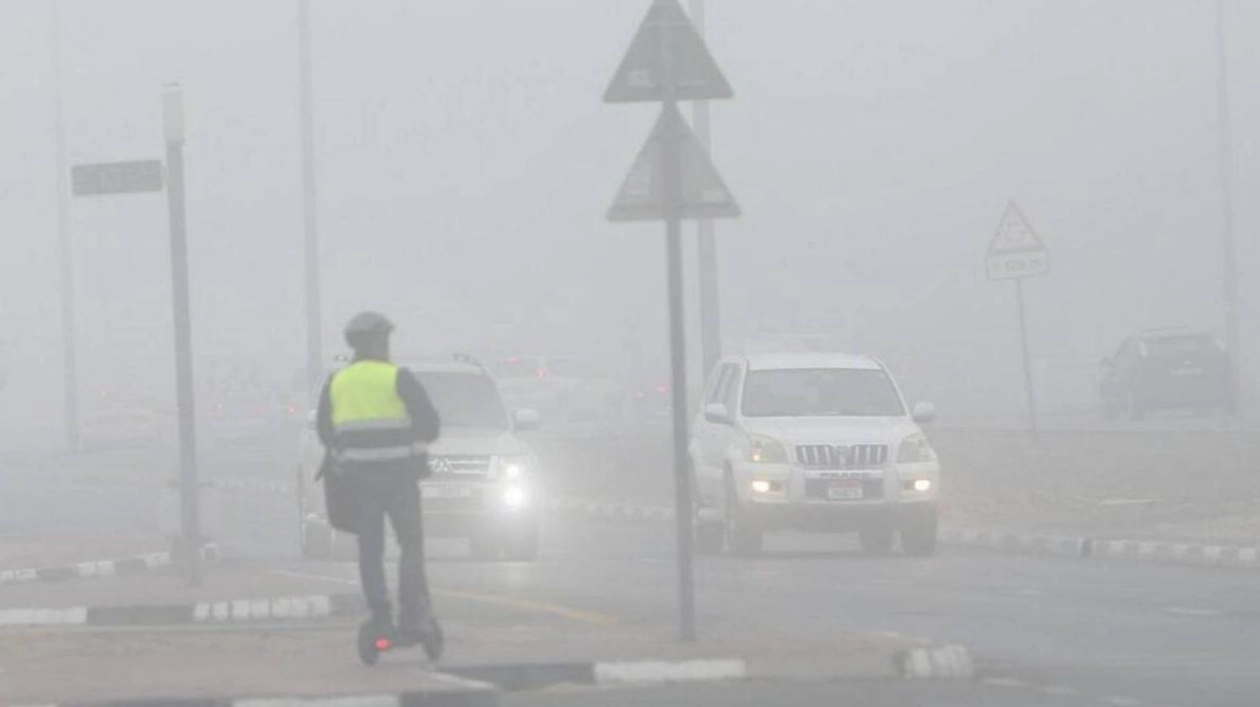Residents of the UAE should anticipate several foggy days, especially when navigating the Dubai-Abu Dhabi highway. An expert from the National Centre of Meteorology (NCM) advises motorists to exercise caution, particularly when fog alerts are issued by the country’s weather agency. Over the past few days, the nation’s mountainous areas have experienced volatile weather and substantial rainfall, including hail in Wadi Hilo, Sharjah, on Monday.
In a conversation with Khaleej Times on Tuesday, Dr. Ahmed Habib, a climate specialist at the National Centre of Meteorology (NCM), predicted fog formation in the coming days along the Abu Dhabi-Dubai, Abu Dhabi-Al Ain, and Abu Dhabi-Western areas. He emphasized the importance of heeding weather alerts and driving with care during these conditions. Dr. Habib explained that the current high pressure and unstable conditions are causing increased humidity, leading to particularly humid nights and early mornings, with fog expected during these hours.
Moderate rain was observed on the Kalba Shokah Road in the Eastern Region of the UAE on Monday, while light rain occurred in areas near the Shawka-Al Muinai Road at Ras Al Kaimah. The weather department has also issued an orange alert due to the formation of convective clouds, which could result in rainfall and sporadic strong winds, causing dust storms.
Dr. Habib noted that despite temperatures around 45-46 degrees Celsius, the high humidity makes it feel even hotter. He attributed the partly cloudy skies and varied rainfall across the country to the influence of a low-pressure system from the East Indian monsoon, which affects Fujairah and the eastern regions. The mountains in the eastern part of the UAE also contribute to the formation of convective clouds from the Arabian Sea or Oman Sea, leading to daytime rainfall.
Regarding the transition from summer to autumn, Dr. Habib stated that as we move into late August and early September, temperatures will gradually decrease, especially during night and early morning hours. This cooling trend will persist in the weeks ahead as summer concludes. Summer officially ends on September 23, marking the beginning of the transition period to autumn.






